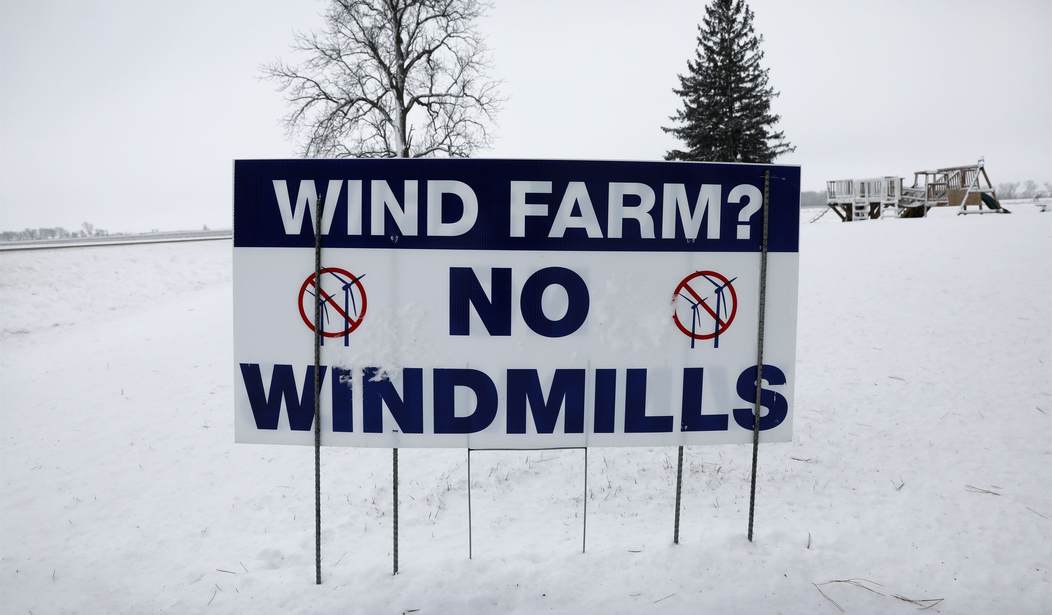The so-called “Inflation Reduction Act” looks as if it’s going to make it into law now that it slithered out of the Senate on a 50-50 vote. We’ve already covered the negligible or even negative impact the bill will have on actual inflation here, but there is plenty more tucked away in the bill that many voters likely didn’t see coming. There are all sorts of climate change antics included in the bill’s language, but another portion of it directly impacts the energy sector and you should not anticipate it doing anything to address the Biden energy crisis. The Institute for Energy Research has finished a full review of the portions of the bill impacting energy policy and the news is not good. There are massive extensions of existing tax credits and subsidies for wind and solar energy, while nothing will be done to help sustain the country’s oil and natural gas supplies. Given that far more than half of the country’s energy grid relies on these supplies, the math simply does not add up.
The Federal government has already spent well over $100 billion on renewable credits for electricity production since their enactment three decades ago, and the “Inflation Reduction Act” will cost taxpayers another $98 billion. The proposed bill is full of incentives for renewable energy technologies, chief among an extension of wind and solar tax credits significantly increasing subsidies for them, provided additional criteria are met during construction. It also offers new tax credits for domestic manufacturing of solar panels and wind turbine parts as well as energy storage projects sited separately from renewable generation facilities.
Wind and solar projects would effectively get an extension on tax credits for production and investment, as would stand-alone energy storage projects. If Senator Joe Manchin wanted to handicap natural gas and coal generators and force more retirements, this is certainly a way to do it. The United States would be forcing renewable energy in the same fashion as Europe has been doing.
Read the last two sentences of the excerpt carefully. Joe Manchin is being called out for cutting a deal that secured another pipeline for his home state but it will further handicap the natural gas and coal generation plants around the nation. The government is yet again following the European model of forcing the development of renewable energy resources to the detriment of traditional, reliable fossil fuel plants. And you’ve already seen how well that’s working out for Europe.
The specifics of the energy credits all push the nation in a single direction. The Production Tax Credit (PTC) and the Investment Tax Credit (ITC) are being modified. Tax credits for new wind and solar plants are being extended through 2025. (The original credits were to have expired this January.) The base production tax credit for new renewable energy projects would, at least on paper, be cut from .15 cents per kilowatt hour to .03 cents. But they are automatically restored to the original rate if the projects meet certain government requirements. What sort of requirements are those? Are they mandating efficiency rates or reliability? Nope. They have to meet certain “wage and apprenticeship” requirements. In other words, they’ll have to use union labor to qualify.
The Production Tax Credit for wind projects had originally been slated to be phased out, starting with a forty percent reduction next year. That “phase out” has quietly been removed so that the cash will continue to roll for new wind farms. The list goes on with the same types of changes to other credits, handouts to unions, and Democratic wishlist items.
As IER explains, this is really a fiscal shell game being played by the federal government. Renewable energy facilities are expensive to build and maintain and their reliability is questionable at best. But Washington is making these projects artificially cheaper by using these massive tax credits. But they’re not actually any cheaper. The cost is simply being transferred to the taxpayers. At the same time, making them appear cheaper allows these projects to be more competitive with natural gas or oil projects, neither of which are receiving any help from Uncle Sam.
The oil and gas industry has already essentially stopped building new refineries and is taking others offline. The energy grid is already at the point of buckling and rolling blackouts are increasingly common. This bill will only ensure that the industry has no chance of making a profit from any future refineries, so they won’t be taking the risk. I’m sure that was the underlying goal of the Biden administration to begin with, but they’re going to have a lot of angry people demanding answers when the lights go out.








Join the conversation as a VIP Member